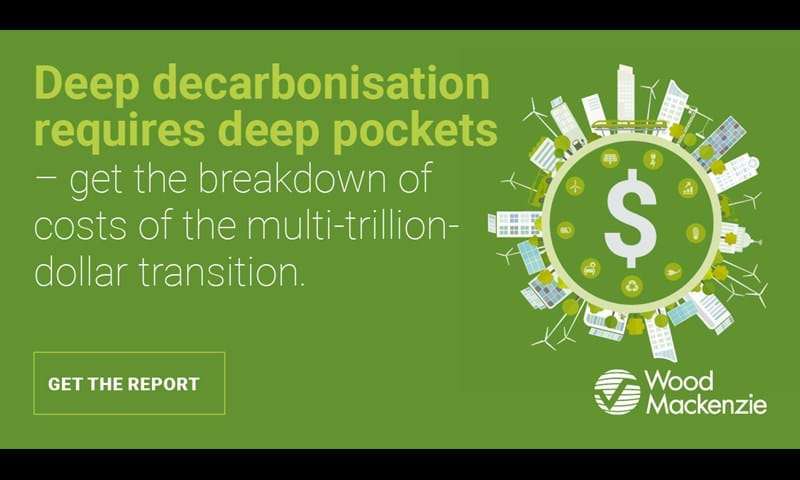Elsewhere, in one of her final acts as Prime Minster, Theresa May has brought forward legislation to upgrade the UK’s existing 2050 emissions reduction target from 80% to 100%.
We estimate the cost of full decarbonisation of the US power grid at US$4.5 trillion, given the current state of technology. That's nearly as much as what the country has spent, since 2001, on the war on terror. From a budgetary perspective, the cost is staggering at US$35,000 per household – nearly US$2,000 per year if assuming a 20-year plan.
The price tag may not be the highest hurdle to overcome. Eliminating fossil fuels represents a transformative investment opportunity for stakeholders of the new energy economy. But for legacy participants in the energy industry, it also creates an existential crisis. Companies – and in some cases, whole industries – must evolve or perish.
Although decarbonisation timelines differ, it is increasingly clear that utilities, the oil and gas industry and other energy market participants must account for the implications of these impending policy decisions in their current strategic planning activities.
Consequently, difficult choices must be made by political leaders, regulators, CEOs and energy consumers alike. For any country to embrace a nationwide transition to 100% renewable energy (RE100) or zero carbon (ZC100) emissions constitutes a massive disruption with far-flung economic and social repercussions. Nimbyism – a not-in-my-back-yard attitude – is inevitable and forecasted increases in
consumer energy costs may result in public backlash against aggressive climate change policies.

MoustacheAmbassadeur on July 26th, 2019 at 02:36 UTC »
If the ROI of the moon landing was for every dollar spent, the us got at minimum 14 dollars back, imagine what transforming the complete energy system will do to the economy with the millions of patents from developing methods, tech, production methods, production facilities, job creation, taxes ..
The economy would look like that in the 60s or 70s again
Edit: typos
bombula on July 26th, 2019 at 02:25 UTC »
100% renewables would be tough, and a lot more expensive than 90% renewables plus a bit of nuclear power. Without nuclear providing non-intermittent baseload the cost of batteries might double or triple just to cover that last 10%.
The total cost would then be a bit less than this estimate. Maybe more like 2.5 to 3 trillion dollars. Still a lot, but doable.
ddelamareuk on July 25th, 2019 at 22:11 UTC »
Everyone's been saying this for years. The world could be completely transformed in 1 generation. It's discussing the time and lives lost to fossil fuel greed. Can you imagine how healthy everyone on this planet would be, and how stable our planets ecosystem would be in a single generation? We need to stop this shit and start converting.